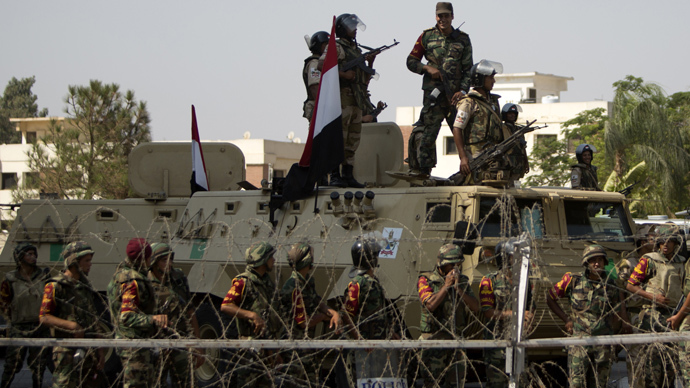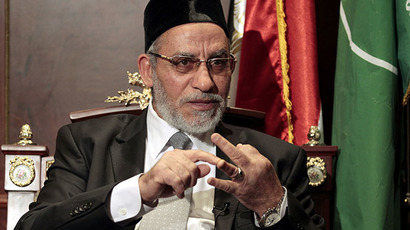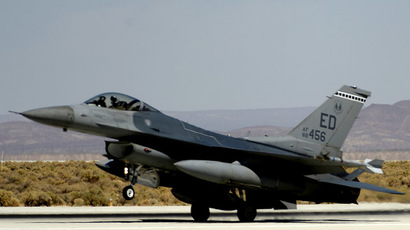Egypt’s interim leader gives green light for civilian arrests

Egypt's interim President Adly Mansour has signed a decree giving the military the right to arrest civilians. The move has sparked fears of a further escalation of violence throughout the country.
The death toll from Saturday clashes between security forces and
supporters of ousted president Mohamed Morsi has risen to at
least 80, unnamed officials from Egypt’s health ministry told AP.
Two more people were killed on Sunday as violence broke out
during the funerals for those who had lost their lives in the
preceding days.
The deaths occurred in two separate incidents: one in the Suez
Canal city of Port Said, where 28 people also reportedly
sustained injuries, and the other in the town of Kafr el-Zayat in
northern Egypt.
The figures have made Saturday the bloodiest day in Egypt since
Morsi’s deposal, with the interim president’s office stating that
it was "saddened" by the loss of life on such a large
scale. The office added that any action taken by the military is
carried out in the "context of terrorism."
President Mansour’s decree, which allows Prime Minister Hazem
El-Beblawi to give the military power to arrest civilians, was
announced in the government's official gazette on Sunday. The
decision could lead to a major crackdown on both Brotherhood
supporters and militants who have been attacking security forces
in the Sinai Peninsula with renewed vigor, government officials
say.
This decree is not the first time that Egyptian armed forces have
been given the go-ahead to arrest civilians. In June 2012, the
previous army-backed interim government tried to issue the same
order following the stepping down of former President Hosni
Mubarak. The decision was immediately challenged by human rights
activists and politicians who accused the military council of
reviving an unpopular emergency law that lapsed the previous May.
An Egyptian court eventually overturned the justice ministry’s
decree.
On Saturday, US Secretary of State John Kerry called on Egypt’s
military-backed interim government to “act immediately to help
their country take a step back from the brink," expressing
deep concern over the situation and calling it "a pivotal
moment for Egypt."
EU foreign policy chief Catherin Ashton arrived in Cairo on
Sunday to meet with a host of officials, including Mansour
and Vice President Mohamed ElBaradei - who in a statement
expressed his desire for Egypt "to achieve a peaceful solution
to the current crisis." State news agency MENA said that
Ashton will also meet with members of the Muslim Brotherhood, as
well as the Tamarod group, who was the driving force behind the
protests leading up to Morsi’s ouster.
The former Islamist-backed president was in power for only one
year before being deposed by the Egyptian armed forces on July 3.
The move sparked nationwide protests and widespread violence,
painting a scene similar to the events of February 2012 which led
to former long-time President Hosni Mubarak stepping down.














